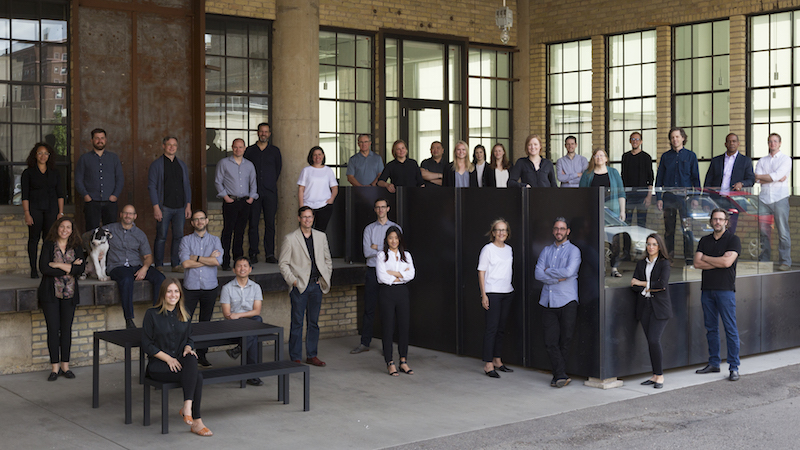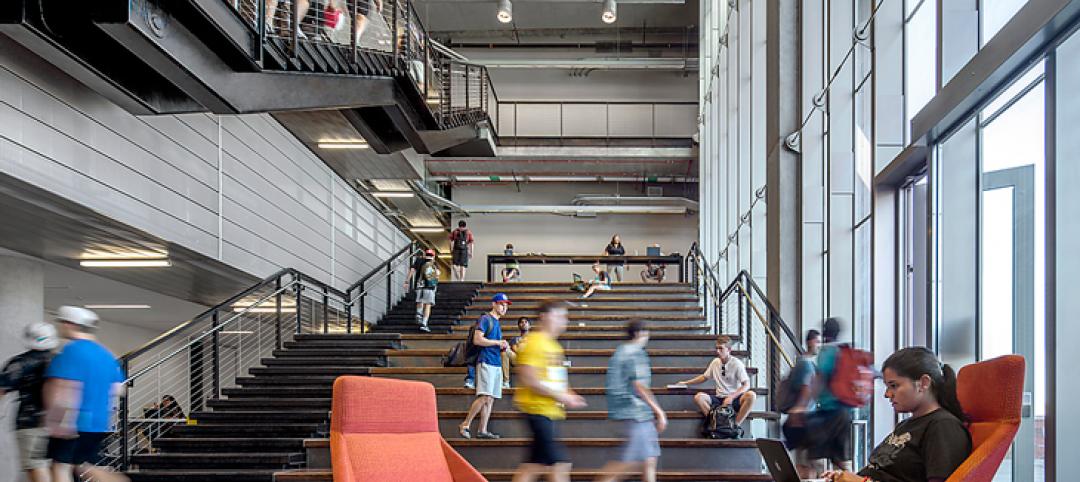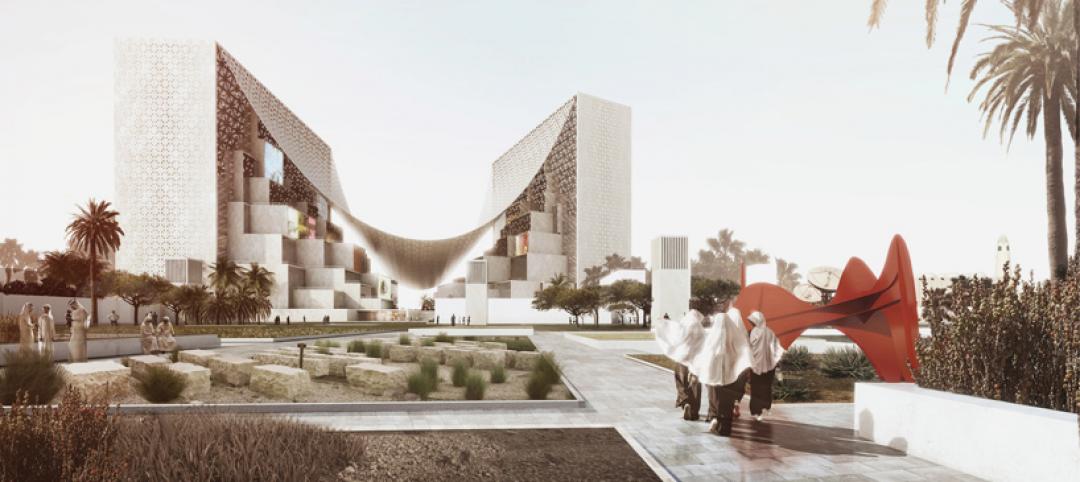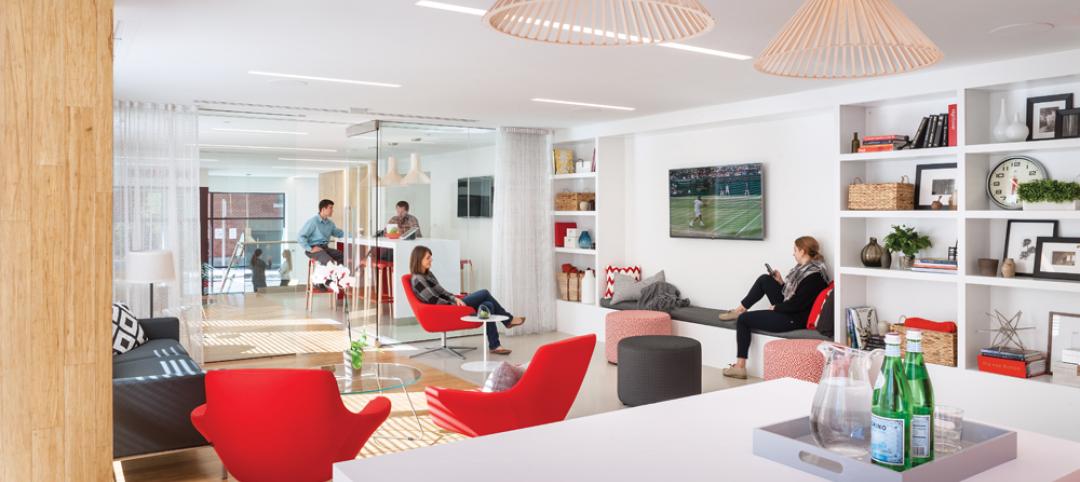The Board of Directors and the Strategic Council of the American Institute of Architects (AIA) voted for Snow Kreilich Architects to receive the 2018 AIA Architecture Firm Award. The AIA Architecture Firm Award, given annually, is the highest honor the AIA bestows on an architecture firm and recognizes a practice that consistently has produced distinguished architecture for at least 10 years. Snow Kreilich Architects will be honored at the AIA Conference on Architecture 2018 in New York City.
Julie Snow, FAIA, founded the firm in Minneapolis in 1995, and later was joined by partner Matt Kreilich, AIA. Snow Kreilich’s practice benefits greatly from the diversity and background of its studio members. Eschewing the demographic norms of many firms, 50 percent of the staff consists of women and minorities, strengthening the culture through holistic collaboration.

All of Snow Kreilich's work springs from the idea that architecture can transform the human experience. Two of the firm's most famous projects — ports of entry for the U.S. Department of Customs and Border Protection in Maine and Minnesota — embody that idea perfectly. Together, the forms of the buildings — the first welcome to America for tens of thousands per year — are about border security as much as they are about a progressive vision for architecture. Their warm materials and glowing interiors project an embracing welcome to all and quietly, but confidently, state that this is a country of bold design solutions.
“This is an architecture of use and convenience, permanence, and beauty, deeply rooted to its place, and constructed of materials choreographed in an emotive way, with poetic qualities that move us deeply,” Marlon Blackwell, FAIA, wrote in a letter supporting Snow Kreilich Architects’ nomination for the Architecture Firm Award. “Their body of work is distinguished by a restrained formal elegance and a refined minimal tectonic sensibility while avoiding the nostalgic and technological excesses of our discipline. Indeed, they see architecture as a material practice and a cultural act born of a sensual pragmatism.”

The Minneapolis firm is also highly regarded for its other building types, from ballparks to single family homes, that each in its own way accomplishes the same mission of elevating the experience of its users. Much of that is done by exercising restraint, eliminating indulgent flourishes in favor of straightforward forms that speak about material richness and tectonic refinement.
Across the Mississippi River in a Minneapolis warehouse district, the firm's 2014 Brunsfield North Loop Apartment uses metal cladding and angular balconies that jut from the facade to set the building apart from its neighbors as the hippest offering in a hot rental market.
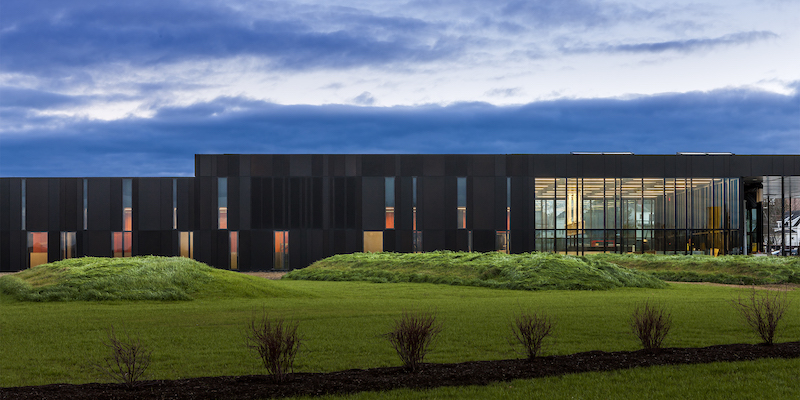
Giving back to the communities of Minnesota and the profession are key initiatives beyond design excellence, and many studio members are involved in local architecture schools. In 2017, the firm provided $120,000 in pro bono services to outlets such as the Kibera Girls Soccer Academy in Kenya and the Leatherback Trust in Costa Rica. By shelving the idea of all-night charrettes and promoting a healthy work/life balance, Snow Kreilich has proven that important and award-winning architecture can be conceived during regular business hours.
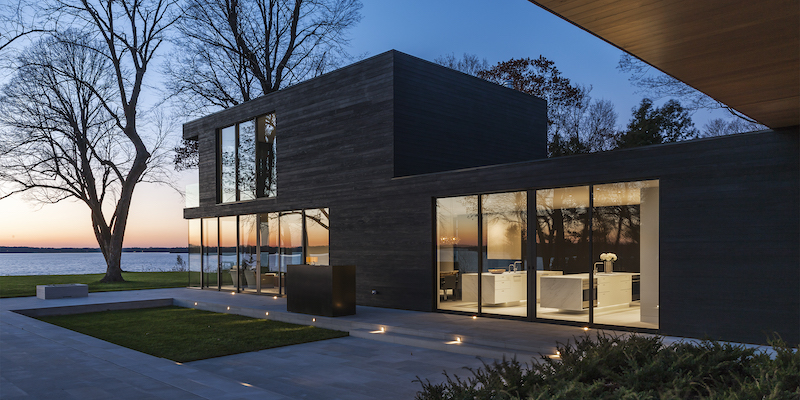
Other notable projects include:
CHS Field
This project in St. Paul, Minn., was named the best New Ballpark of 2015 by Ballpark Digest. The facility is not only a beautiful venue to watch a baseball game or concert, but also has attracted major investments in housing and restaurants in the neighborhood.
B + W HOUSE
The design replicates the neighborhood’s residential pattern while creating an affordable, sustainable home. A concrete wall encloses the perimeter of the private spaces at grade. The wall is a cast-in-place concrete system with a 4-inch high performance insulation core, providing a cost-effective, energy-efficient, and durable enclosure.
KNOCK INC.
The renovation of a neglected 1960’s food distribution center on the edge of downtown Minneapolis into the new workplace for the creative innovators at KNOCK Inc. Daylight penetrates the space with expanded window openings, floor-to-ceiling glazed office walls, and more than 25 solar light tubes enhancing the work environment and reducing energy consumption. Healthy and local building materials such as reclaimed walnut enhance the workday.
Snow Kreilich Architects is the 55th AIA Architecture Firm Award recipient. Previous recipients of the AIA Firm Award include Leddy Maytum Stacy Architects (2017), LMN Architects (2016), Ehrlich Architects (2015), Eskew + Dumez + Ripple (2014), Tod Williams Billie Tsien Architects (2013), VJAA (2012), Lake| Flato (2004), Gensler (2000), Perkins & Will (1999), Bohlin Cywinski Jackson (1994), and Skidmore, Owings & Merrill (1962).
Related Stories
Sports and Recreational Facilities | Feb 4, 2015
Arup unveils plans for the new A.C. Milan stadium
The venue will include a modern stage for the home matches together with a hotel, sports college, restaurants, children’s playground, green areas, and spaces open to the city and dedicated to public use.
Higher Education | Feb 3, 2015
Integrated Learning Neighborhoods: A solution for linking student housing with the typical student experience
Just as urban housing fits into the city as a whole, student housing can be integrated into the campus network as a series of living/learning neighborhoods, write Gensler's Brian Watson and Mark McMinn.
Office Buildings | Feb 3, 2015
5 trends transforming workplace design
RTKL's workplace design expert Jodi Williams foresees healthier and more technologically enabled offices that allow productive worker interaction, wherever they happen to be.
Architects | Feb 3, 2015
Frank Lloyd Wright’s work nominated for UNESCO World Heritage Status
If selected, Wright’s work will be the first examples of U.S. modern architecture on the list.
Contractors | Feb 3, 2015
Nonresidential construction spending expands in December 2014
Seven of 16 nonresidential construction subsectors posted increases in spending in December on a monthly basis.
Office Buildings | Feb 3, 2015
Bjarke Ingels' BIG proposes canopied, vertical village for Middle East media company
The tensile canopy shades a relaxation plaza from the desert sun.
Fire-Rated Products | Feb 3, 2015
AIA course: Fire and life safety in large buildings
Earn 1.0 AIA/CES learning units by studying this article and successfully completing the online exam.
Multifamily Housing | Feb 2, 2015
D.C. developer sees apartment project as catalyst for modeling neighborhood after N.Y.'s popular High Line district
It’s no accident that the word “Highline” is in this project’s name. The goal is for the building to be a kind of gateway into the larger redevelopment of the surrounding neighborhood to resemble New York’s City’s trendy downtown Meatpacking District, through which runs a portion the High Line elevated park.
Healthcare Facilities | Feb 1, 2015
7 new factors shaping hospital emergency departments
A new generation of highly efficient emergency care facilities is upping the ante on patient care and convenience while helping to reposition hospital systems within their local markets.
Multifamily Housing | Jan 31, 2015
5 intriguing trends to track in the multifamily housing game
Demand for rental apartments and condos hasn’t been this strong in years, and our experts think the multifamily sector still has legs. But you have to know what developers, tenants, and buyers are looking for to have any hope of succeeding in this fast-changing market sector.


